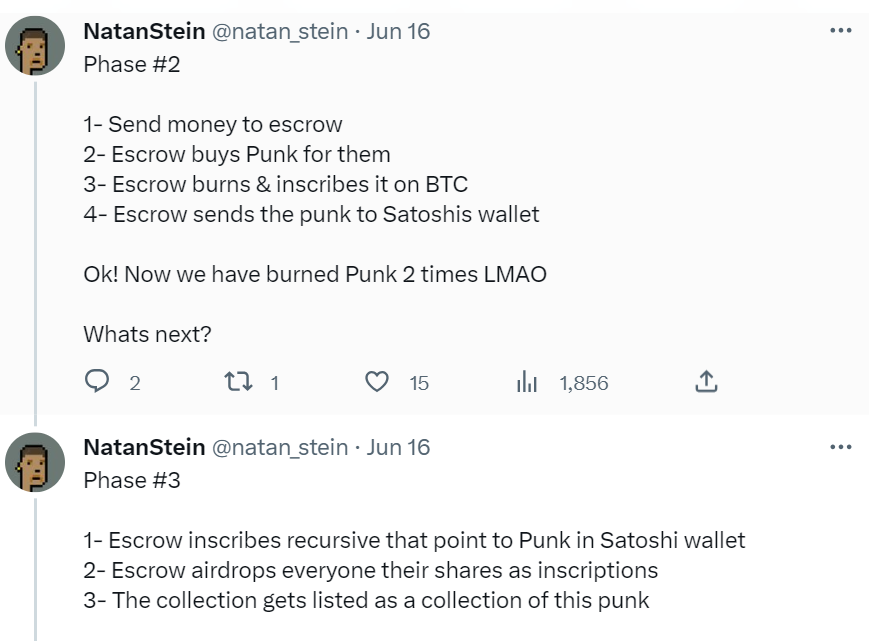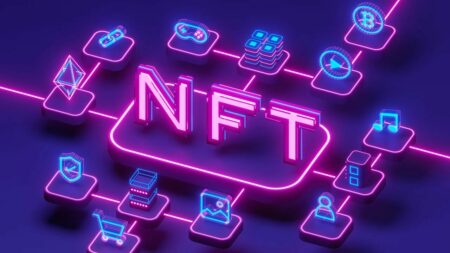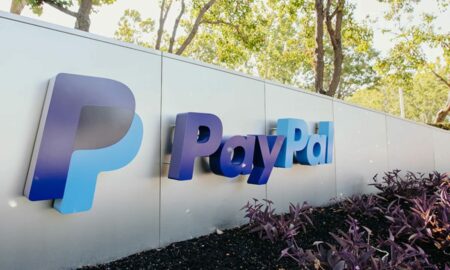A CryptoPunk NFT was removed from the Ethereum blockchain forever, as a Bitcoin community tied it to an Ordinals inscription. But how and why did they burn this expensive NFT?
TL;DR
- The Bitcoin Bandits community burned an expensive CryptoPunk NFT and tied it to an Ordinals inscription on the Bitcoin network;
- The digital asset, worth over $94,000, is now inscribed on satoshi – the smallest part of one Bitcoin;
- Recently, more and more Bitcoin holders are burning NFTs to shift their value from Ethereum to the Bitcoin blockchain.

Why Did Someone Burn a CryptoPunk NFT?
This past weekend, CryptoPunks fans watched one of the collection’s top NFTs disappear forever. Last Saturday, CryptoPunk #8611 sold for 54.49 Ethereum (nearly $95,000 at the time of writing). Later that day, someone mysteriously burned the NFT. This means the asset will never be available again as it’s locked away in a burned Ethereum address – but why?
As we now know, the buyers are Bitcoin Bandits, a Bitcoin Ordinals project of pixelated PFP assets. The collection’s founder and Wolf Capital developer Nathan Stein was behind the move. He allegedly convinced about 150 community members to contribute financially in order to buy CryptoPunk #8611. Before making the purchase, the group agreed on a fixed profit share from the move.
Here’s the detailed process as Nathan Stein himself explained it:

After burning the CryptoPunk, the Bitcoin Bandits inscribed it on satoshi. Satoshi is basically the smallest part a Bitcoin can be divided into. Thanks to the recent Bitcoin Ordinals concept, anyone can tie their assets to BTC.
This process, called teleburning, is now more popular than ever, but how does it affect the NFT space?
Teleburning NFTs: How Does it Impact the NFT Market?
Although Bitcoin Bandits’s move might seem revolutionary, teleburning NFTs is already a trend – and the CryptoPunk NFT #8611 is the latest example. Many other users and communities bought Ethereum collectibles just to burn and inscribe them on satoshi.
Overall, these communities hope to shift the value these NFTs have on Ethereum towards their own Bitcoin community. However, such actions can pose a threat to NFT collectors; after all, the more digital assets people burn, the rarer the collectibles get.
In fact, it’s one of the reasons why Ethscriptions were born. Much like Bitcoin Ordinals, Ethscriptions allow users to inscribe digital assets on the Ethereum network. Right now, users seem interested in the new concept, but only time will tell if it will be just as successful as its rival, Bitcoin Ordinals.
All investment/financial opinions expressed by NFTevening.com are not recommendations.
This article is educational material.
As always, make your own research prior to making any kind of investment.








